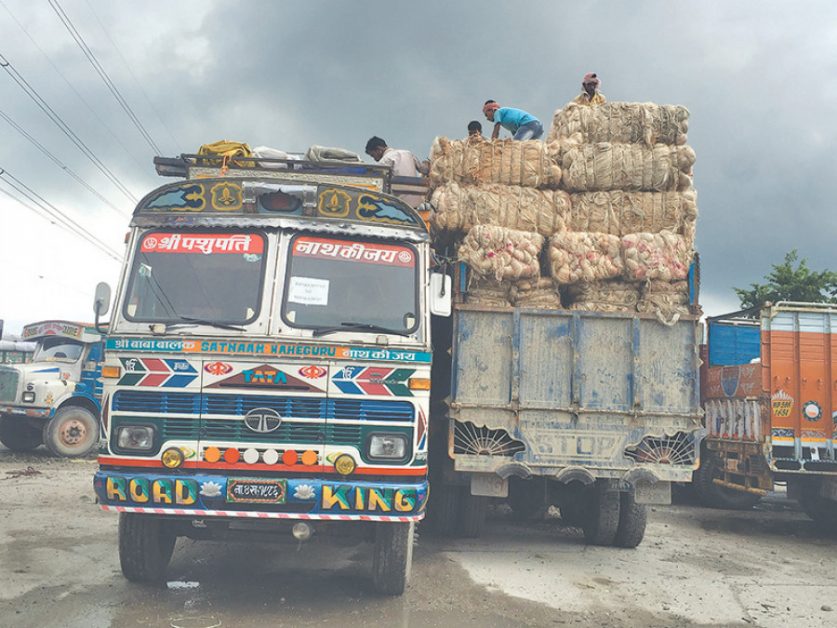October 8, 2020: Nepal has sought duty-free and quota-free market access for 76 goods while Bangladesh is seeking preferential treatment for 42 goods as joint secretary-level trade talks between the two South Asian countries kicked off on Tuesday.
Prakash Dahal, joint secretary at the Ministry of Industry, Commerce and Supplies, said they discussed the draft of a preferential trade agreement and the rules of origin and technicalities on the first day of the virtual meeting.
A decision on the preferential trade agreement will be finalised and signed after the secretary-level meeting scheduled for Thursday.
“Our main focus is on zero tariff for the listed goods from Nepal,” he said.
Besides customs charges, Bangladesh levies other detail charges (ODC) on Nepali goods that prices them out of the Bangladeshi market, he said.
Bangladesh has been providing duty-free access to 108 Nepali products. Nepal has been urging Bangladesh to expand the list to cover major exportable items such as tea, coffee, large cardamom, broom, fresh fruits, kattha and pashmina, among others. Items not getting duty-free access have difficulties entering Bangladesh.
“Our major concern is to eliminate those extra charges completely, and we will discuss it thoroughly,” said Dahal. “If Bangladesh is positive about this matter, the preferential trade agreement will be finalised.”
He said that signing a preferential trade agreement on additional products would increase exports and trim the trade deficit to some extent. “In our context, we will not be able to provide greater preferential treatment to Bangladeshi goods than Indian goods.
Bangladesh is looking for 100 percent customs waiver under the preferential trade agreement, said Dahal. But we have not received the final list of goods from Bangladesh, he said.
The products that are mostly exported from Nepal to Bangladesh are listed in a preferential trade agreement, and they include agro products like lentils, green vegetables and fruits, dairy products, tea and coffee, cardamom, ginger and yarn, among others.
The meeting will also review the status of the agreements between Nepal’s Department of Food Technology and Quality Control and the Bangladesh Standard and Testing Institution, and Salt Trading Corporation and Trading Corporation of Bangladesh. These pacts were signed at the fifth meeting last year.
The agreements are intended to help in exchanging standards and information on quality control between the two countries, said Dahal.
Nepal and Bangladesh are scheduled to sign a memorandum of understanding to share agriculture know-how between the Department of Agriculture Extension of Bangladesh and Nepal’s Department of Agriculture.
There are many customs procedures that Nepali farm products have to undergo in Bangladesh. Though Bangladesh has pledged to address the problem, no steps have been taken yet. “It will be one of the items on the agenda,” said Dahal.
Last year, Nepal and Bangladesh discussed direct flight connectivity through Saidpur in Bangladesh and Bhadrapur or Biratnagar in Nepal. Officials said that Bangladesh had been positive about the proposal to promote tourism and operate cargo flights for light goods. “This subject will be discussed again,” said Dahal.
Bangladesh has proposed a list of pharmaceutical products to Nepal by observing the situation on listed medicine products, which will be discussed at the conference, he said.
An agreement on Rohanpur-Singhabad railway transit has been reached, and discussions will be held about the work to be done by the two sides. This will help in cutting import costs, he added.
As Nepali students need to renew their visas repeatedly while studying engineering and medicine in Bangladesh, discussions will be held to provide visas for the duration of the course.
Bangladesh has raised the subject of visas for investors and business people. There is no provision of on arrival visa for citizens of either country travelling overland. This subject will also be discussed, said Dahal.
Source: Kathmandu Post






